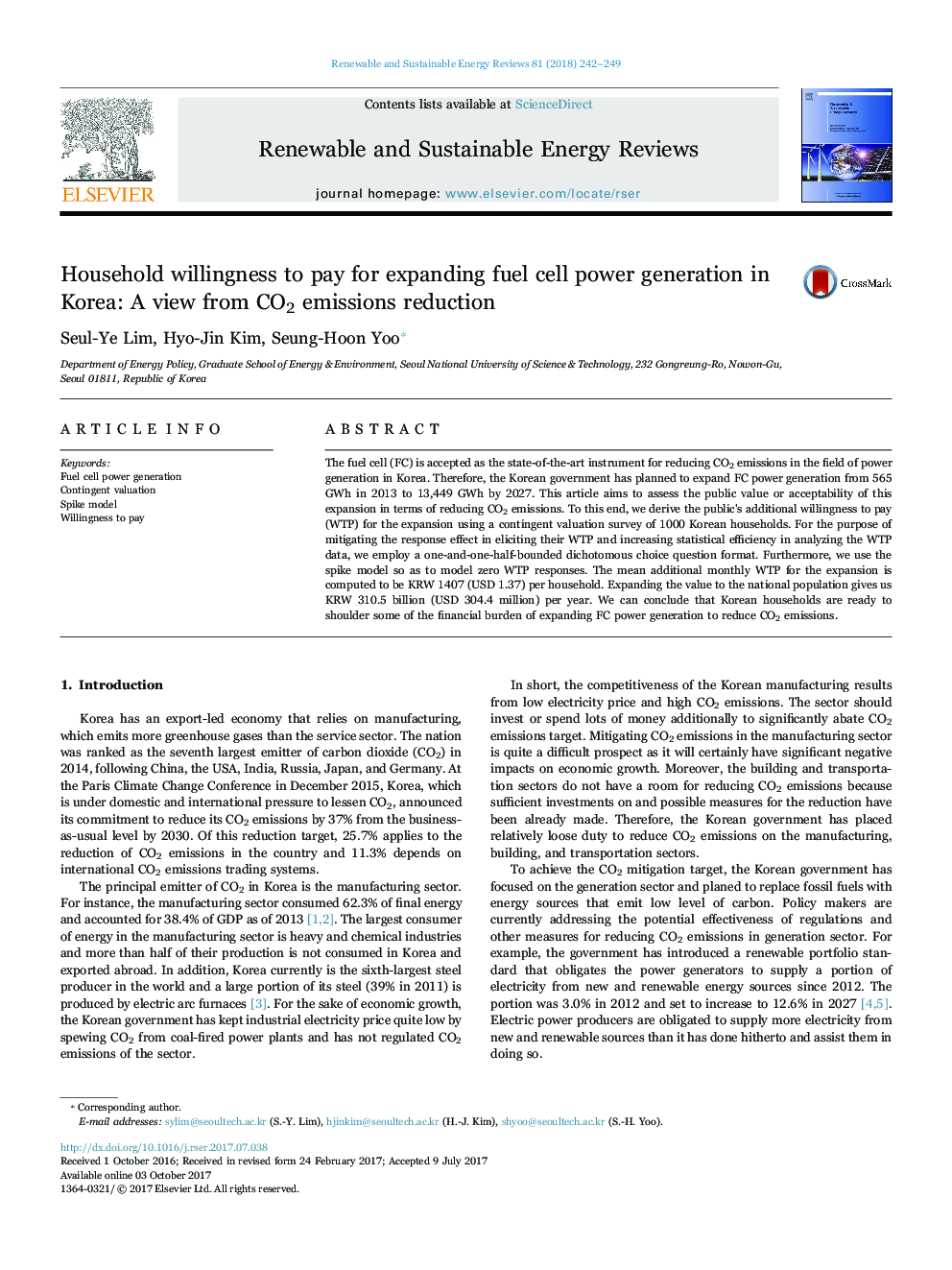| Article ID | Journal | Published Year | Pages | File Type |
|---|---|---|---|---|
| 5481957 | Renewable and Sustainable Energy Reviews | 2018 | 8 Pages |
Abstract
The fuel cell (FC) is accepted as the state-of-the-art instrument for reducing CO2 emissions in the field of power generation in Korea. Therefore, the Korean government has planned to expand FC power generation from 565 GWh in 2013 to 13,449 GWh by 2027. This article aims to assess the public value or acceptability of this expansion in terms of reducing CO2 emissions. To this end, we derive the public's additional willingness to pay (WTP) for the expansion using a contingent valuation survey of 1000 Korean households. For the purpose of mitigating the response effect in eliciting their WTP and increasing statistical efficiency in analyzing the WTP data, we employ a one-and-one-half-bounded dichotomous choice question format. Furthermore, we use the spike model so as to model zero WTP responses. The mean additional monthly WTP for the expansion is computed to be KRW 1407 (USD 1.37) per household. Expanding the value to the national population gives us KRW 310.5 billion (USD 304.4 million) per year. We can conclude that Korean households are ready to shoulder some of the financial burden of expanding FC power generation to reduce CO2 emissions.
Related Topics
Physical Sciences and Engineering
Energy
Renewable Energy, Sustainability and the Environment
Authors
Seul-Ye Lim, Hyo-Jin Kim, Seung-Hoon Yoo,
